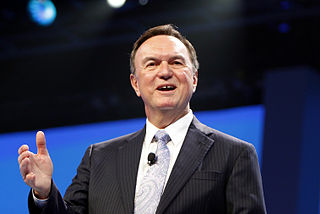A Quote by Marc Faber
My view is that the U.S. market will eventually join the emerging markets on the downside because if you take a bearish view about emerging economies, you cannot be too optimistic about the U.S. because for many U.S. corporations, 50 percent or more of their profits come from emerging economies.
Related Quotes
To invest successfully, you need not understand beta, efficient markets, modern portfolio theory, option pricing or emerging markets. You may, in fact, be better off knowing nothing of these. That, of course, is not the prevailing view at most business schools, whose finance curriculum tends to be dominated by such subjects. In our view, though, investment students need only two well-taught courses - How to Value a Business, and How to Think About Market Prices.
The typical big Japanese company has somewhere between a third and 40 percent of its revenues coming from developing countries, and about a third of Japan's exports are also to the emerging countries, so in a strange way, Japan, which has very little internal growth, its big companies are a good way to play the emerging markets.

































